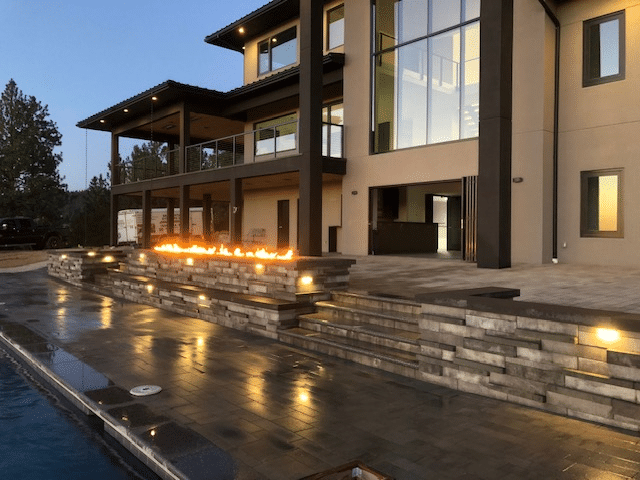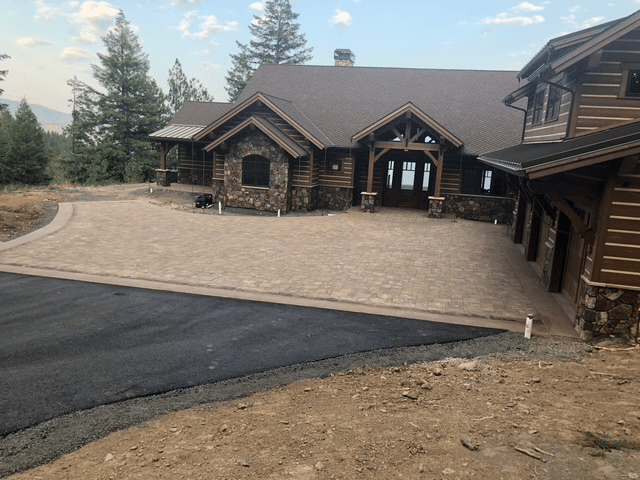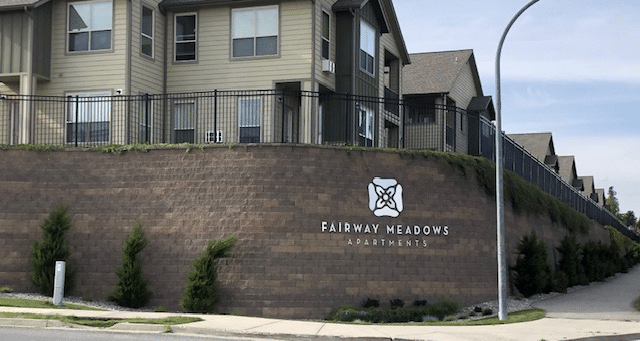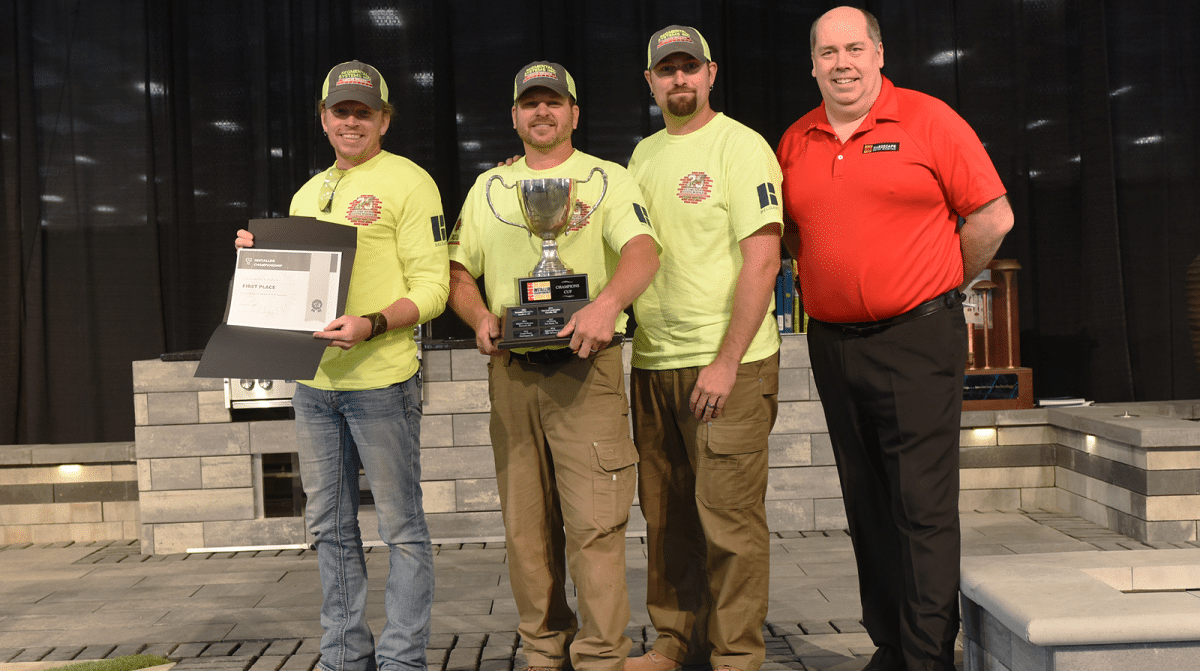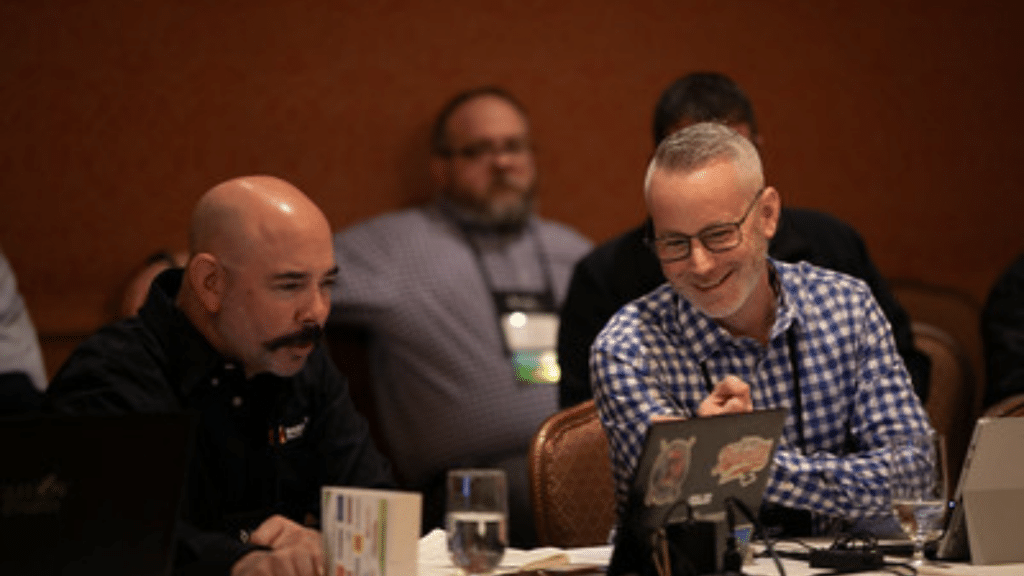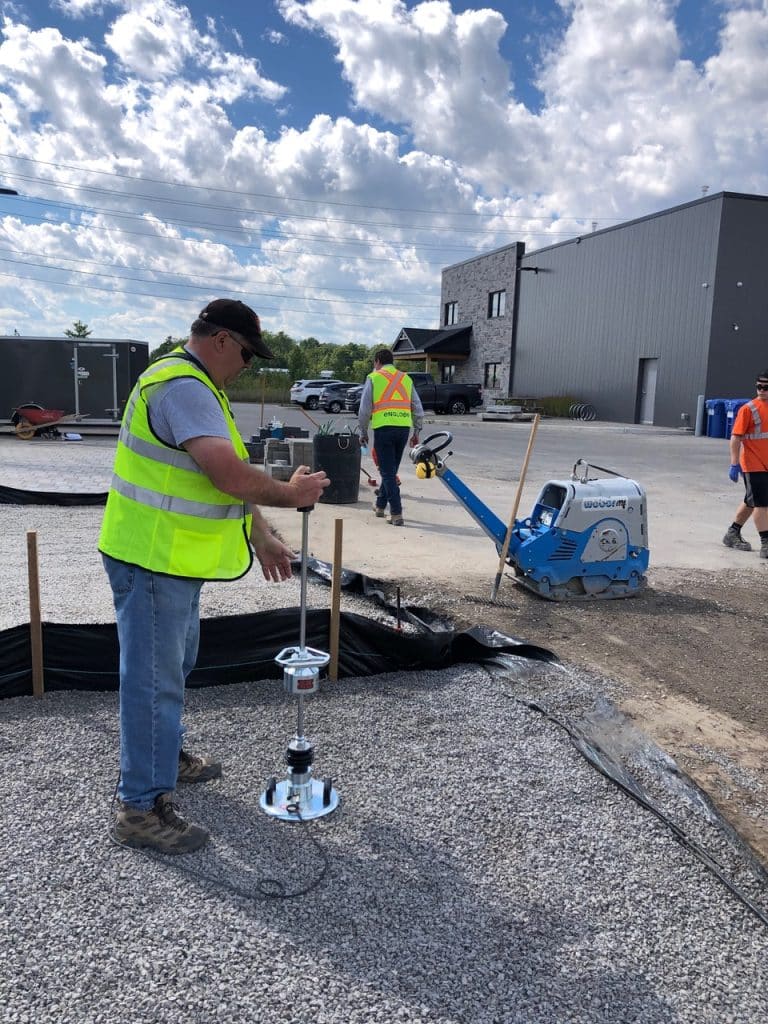The Seeds of a Career
As a junior in high school, Hughes found himself searching for a way to earn some money.
“I had an older cousin that was telling me how much money he was making in construction. I’m like that sounds great, but I didn’t really have an avenue in construction. I didn’t know anything about framing houses or roofing or anything else in construction,” Hughes said. “I thought, hey, I could probably do landscaping.”
He took the initiative, knocking on doors to land a job afterschool, a decision that led him to spend the next 10 years in landscaping and hardscaping for various companies while attending college on and off.
As he gained hands-on expertise, Hughes found himself at a crossroads when his employer’s business began to collapse. Looking for stability for his growing family, he briefly stepped away from the industry and took a job as a prison guard—a position he quickly realized wasn’t for him.
“Worst job I ever had in my life,” he said. “But I needed something that was going to pay the bills.”
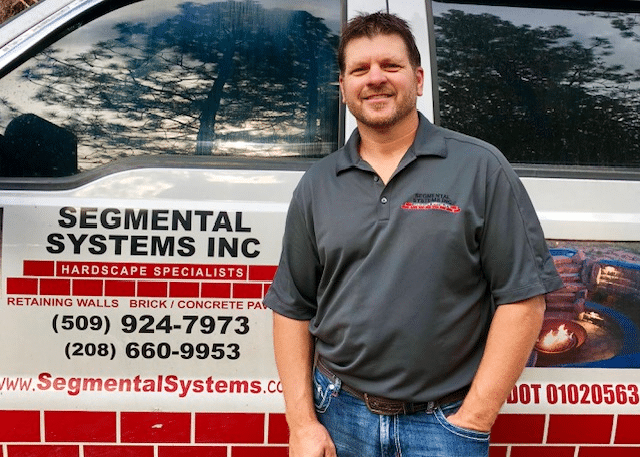
The Opportunity of a Lifetime
Hughes had been looking for a way to become his own boss for a while and he contemplated starting a small landscape maintenance business. He almost made it happen once, but the timing and climate weren’t right. But during his two-year stint as a prison guard, he continued plowing snow on the side, staying connected to the industry.
That connection proved invaluable when he got an unexpected call from the owner of a hardscaping company that Hughes had done some plow work for. He was looking to sell his six-year-old hardscaping business and wanted to know if Hughes was interested in buying it.
“This opportunity fell in my lap,” Hughes said.
He went through the rigorous process of securing an U.S. Small Business Administration loan, selling personal assets, and putting everything on the line to make the dream a reality.
“I had to hawk my house, sell my dirt bike, snowmobiles—everything. It was a stressful time, but in the end, it was worth it,” Hughes said.
Three and a half months later, Hughes officially took ownership of Segmental Systems Inc. and now, nearly three decades later, he’s never looked back.
“At the time, my wife said, ‘You’re wasting your time. Quit going through all this stuff,’” Hughes said with a laugh. “I remind her of that about every other week. I’m like, ‘Hey, remember when you told me I was wasting my time doing this? It worked out pretty well for us!’”
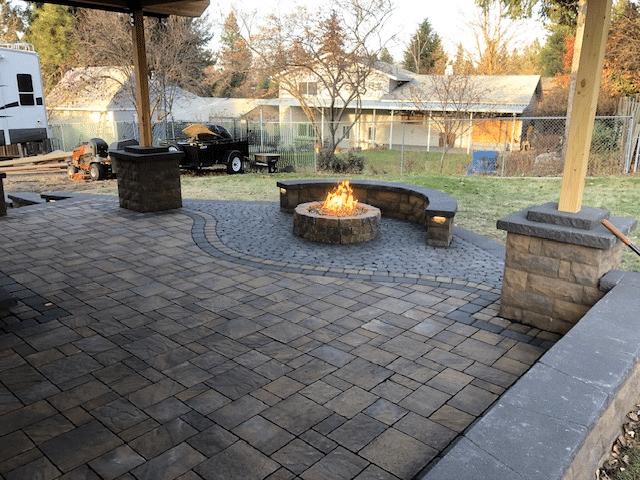
Mastering the Craft
Hughes didn’t just want to run a business; he wanted to excel. From the beginning, Hughes’ Segmental Systems was built on a philosophy of uncompromising quality.
“We weren’t going to cut corners. We were going to specialize in just hardscapes, with guys narrowly focused on one trade rather than trying to do sprinklers and bark and plants and everything else,” Hughes said. “We were able to do a very good job, but also provide a very good price for that. So, people are actually getting good value. It didn’t take long for us to be regarded as the best in the area.”
But Hughes wasn’t content to just be locally known. In 2016, he was invited to judge a paver competition in Seattle.
“I didn’t want to judge it. I wanted to compete. I wanted to see how we measure up,” Hughes said. “We blew everybody out of the water and we won. That competition sent us to Hardscape North America (HNA) to compete in the National Installer Competition.”
The first year, his team finished fifth at HNA and Hughes was both proud and self-critical. “I screwed up a laying pattern,” he said, blaming himself for the competition results.
So, Hughes and his team couldn’t stop there. They continued to compete and improve, ultimately winning the HNA Installer Competition in 2018, 2019, and 2021.
“It gave me a boost. It gave my guys a boost. They’re really proud of those accomplishments and that’s something that that nobody can take away from them,” Hughes said. “I mean, they’re national champions. They know how they stack up in this industry at a national level, right up there with the best in the U.S.”
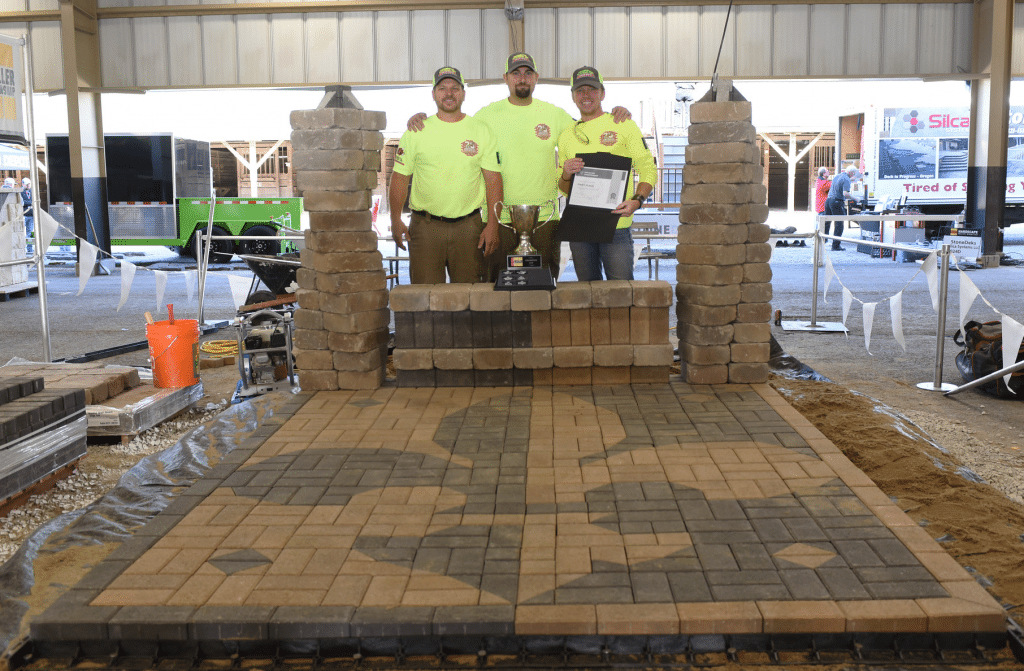
The Heart of the Business
For Hughes, success in hardscaping isn’t just about skill—it’s about teamwork. He emphasizes the importance of cultivating a crew that works seamlessly together.
“It’s amazing how one person can throw an entire crew off, actually throw an entire company off,” Hughes said. “I keep a small core group of guys that gel really well together.”
This deep trust in his team was on full display during a recent hardscaping project that quickly became one of Hughes’ most memorable.
A longtime client was building what might be his final lake cabin—a legacy project. Midway through construction, Hughes had the idea to add a custom feature: a 20-foot diameter circle with an intricate “W” cut into the driveway, a nod to the client’s last name.
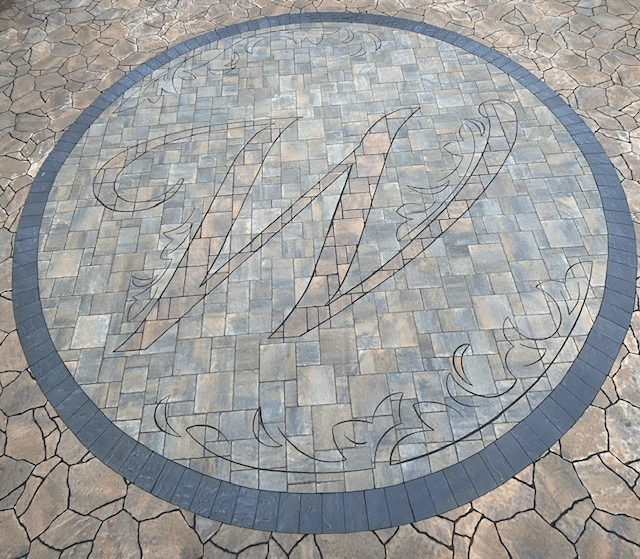
With Hughes away at HNA, he left his team to execute the design without his direct oversight—a big step for someone who is a self-described “control freak.”
“I told the guys, ‘You’re doing it. I want it fantastic and I don’t want to see a picture of it until it’s done,’” Hughes said. “…It turned out phenomenal.”
When the client saw it, he was moved to tears. The design not only impressed him but also caught the attention of the hardscaping community, garnering hundreds of comments praising the craftsmanship in an online group.
For Hughes, this project was the ultimate testament to his team and the company culture he has worked to foster.
“Keep in mind, I didn’t do that,” he says. “I trusted my employees to do it without seeing what they were doing and it turned out absolutely incredible.”
Expanding Industry Involvement
Another significant factor in Hughes’ success has been his involvement with the Concrete Masonry & Hardscape Association (CMHA).
“As a company we can complete pretty much anything. I’m not scared to take on any job. But what’s really got me inspired and grown me professionally was actually getting involved with CMHA,” Hughes said.
What started as a desire to become a paver class instructor evolved into deep professional engagement. After a couple of years of teaching, he was invited to be part of a task group rewriting the interlocking concrete paver course manual. He now serves on multiple CMHA committees, including as the Chair of the Hardscape Construction Committee.
“In my wildest dreams I never thought that I would have been invited to take on that role,” Hughes said. “…The discussions and connections I’ve made are some of the most intelligent conversations you can have about the industry.”
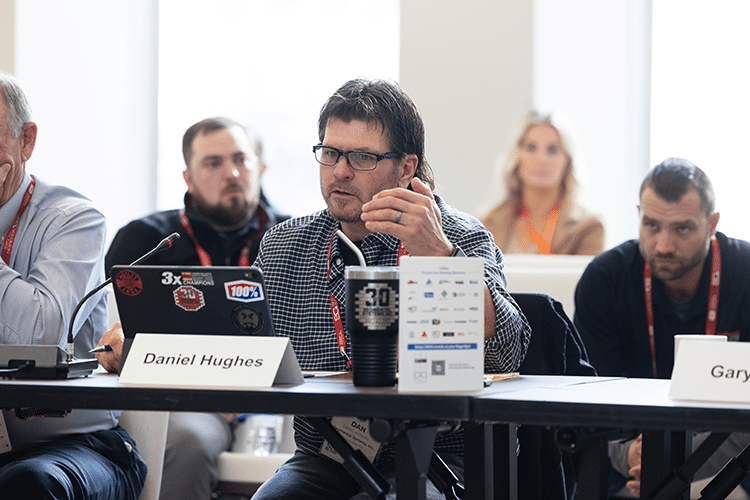
Advice for Aspiring Hardscapers
Hughes’ journey in the industry has taught him valuable lessons, and he’s passionate about sharing them with those looking to break into the field.
“Education is the most important thing you can invest in. Everybody wants to buy the latest, fanciest tools. They want the newest, fanciest trucks. But when you invest in your mind, in your brain, your education, it’s far more important,” Hughes said. “Knowing how to do the job correctly is much more important than what you’re using to build it.”
Hughes also stressed the importance of knowing your own limitations. He urges aspiring hardscapers to be honest about their skill set and avoid taking on jobs they aren’t ready for.
“Build up your skills gradually. Learn before you experiment on a job site,” Hughes said. “It’s not fair to your customer to make them the guinea pig.”
Looking at the future of the industry, Hughes is optimistic.
“It’s not a dead-end career. I mean, concrete pavers have only been in the United States since the mid-1970s. It’s a very new industry. It’s less than 50 years old and it’s really going to take off and boom,” Hughes said.
“There’s going to be a lot of opportunities for people to grow and advance in the coming years.”
Read Dan Hughes’ Instructor Spotlight
